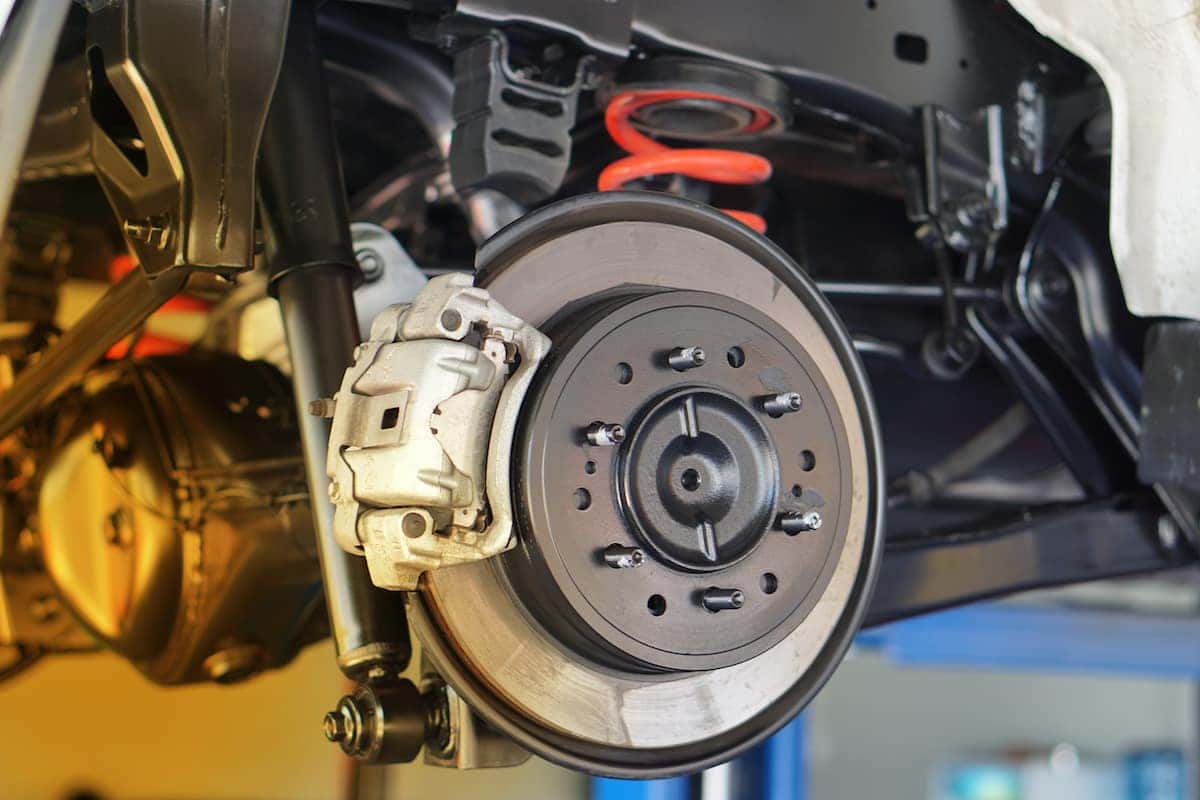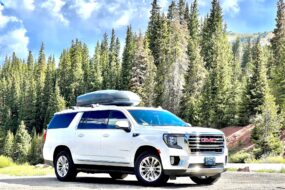The lifespan of a car’s brake pads is usually between 6,000 to 8,000 miles. If you drive a lot, then you may need to replace your brake pads sooner than that. However, it’s recommended that you change them after 5,000 miles to ensure that the braking system is operating safely and effectively.
You can tell when your brake pads are worn out because there will be a noticeable difference in the amount of force you feel. This will happen gradually but eventually, you’ll notice an uneven stopping distance. When this happens, you’ll need to get your car serviced.
This service will include replacing your brake pads, rotors and other essential components. So, you’d better schedule a visit to the mechanic now, instead of waiting until your brake pads start malfunctioning.
In addition, you shouldn’t use a power washer to clean your brake pad surfaces. Doing so can scratch your rotor surface, which could lead to premature failure.
What Is the Average Life Span of A Car Brake?
Most cars have brakes. And, most of the time, these brakes work just fine. However, sometimes, your brakes need to be replaced. So, how long does it take before you should replace them? If you’re wondering whether or not your car’s brakes will last for a very long time, here are some facts that you might want to know.
Your brakes can usually last for more than 50 years.
However, this doesn’t mean that you can drive around without replacing the pads or rotors every year or so. You’ll still need to check on the condition of your brakes after five or ten years. This is because your brakes will eventually wear down over time.
If you’ve been driving for a while, then you may notice that your brakes don’t feel as strong anymore.
You can also get your brake pads and rotors checked at your local auto parts store.
There are several things that can affect the life span of your brakes. One of these is temperature.
When it gets cold outside, your brakes will start to wear faster. However, if it’s hot out, then you won’t need to worry about this problem.
Another factor is speed. When you go fast, the heat from the friction between the brake pads and the rotor is increased.
Why Are Car Brakes Expensive?
When you’re looking to buy a new set of tires, you might be wondering why your old tires cost so much more than brand-new tires. After all, shouldn’t buying used tires be cheaper? The answer is that the price of used tires isn’t always lower.
There are many reasons why this happens. For example, most people don’t know how to properly maintain their tires. This means that they’ll have problems with them sooner rather than later. Another problem is that there’s no way to tell whether or not the tire was damaged by a collision. If you want to save money on your next purchase, then you should make sure that you learn everything about the subject before you go shopping.
If you do need to replace your tires, you can find good deals at local auto parts stores. You just need to ask the right questions when you visit these places. Make sure that you understand what you’re getting into and that you get a warranty for the replacement.
You may also be able to save some money if you take care of your current tires yourself. This is especially true if you live in an area where it’s hard to find a mechanic who specializes in automotive repair.
What Are the Different Types of Car Brakes?
When you’re driving down the road, you want to make sure that you have the right type of brake pads on your vehicle. If you don’t, you could be putting yourself at risk of getting into an accident. You should know all of the different kinds of brakes available so that you can choose the best one for your needs.
You’ll need to consider how much braking power you need. This will depend upon the size of the vehicle and the speed that you drive it at. There are four main types of brake systems: drum brakes, disc brakes, cable brakes, and hydraulic brakes.
Drum brakes use a metal cylinder that rotates with the wheel. When you push on the brake pedal, this causes the cylinders to compress, which stops the rotation of the wheels. Drum brakes tend to work well in smaller vehicles because they can handle small amounts of pressure.
Disc brakes are similar to drum brakes, except that the discs rotate instead of the drums. Discs are made from carbon fiber or aluminum. They provide more stopping power than drum brakes, but they also require a lot of maintenance.
Cable brakes are usually found in larger trucks. They consist of cables that are attached to the vehicle’s frame. As the driver presses the brakes, the cables pull against the frame, which slows the car down.
How Car Brakes Work
When you’re driving your vehicle, you need to be careful so that you don’t cause an accident. This is why it’s important to know how the brake system works. When you press down on the brake pedal, this causes the master cylinder to send fluid into the wheel cylinders. The pressure in these wheels presses against the pads, which eventually push them onto the rotor.
This means that when you apply pressure to the brake pedal, the brake shoes will get pressed onto the rotor and stop the rotation of the wheels. If you want more information on car braking, then make sure to check out the article below.
How does the brake system work?
You might have heard that there are two kinds of brakes: drum brakes and disc brakes. Drum brakes use a metal ring with holes in it to slow the movement of the wheels. Disc brakes use friction to create heat that stops the motion of the wheels.
In addition, the brake system also includes the calipers. Calipers hold the brake pads on either side of the wheel. In order to keep your vehicle from moving forward, you must apply force to both sides of each wheel.
The front and rear axles are attached to the transmission. Each axle has a differential gear that allows one set of tires to rotate at different speeds than another.
What Causes Car Brake Failure
You should never assume that your brakes will last forever. Even though you might be driving a new vehicle, it doesn’t mean that the brakes won’t need replacing at some point. If you want to make sure that you’re getting the best possible service, then you’ll have to get them checked regularly.
One of the most important parts of maintaining good braking power is regular maintenance. This includes checking the fluid level, cleaning the brake pads and rotors, and inspecting the calipers. You also need to check the condition of the wheel bearings.
If you notice any signs of rust, then you need to replace these components immediately. The same goes for the master cylinder. However, if you don’t feel that you can fix the problem yourself, then it’s time to take your car to a professional mechanic.
This is a guide that explains why you shouldn’t drive with worn-out brakes.

Preventing Car Brake Failure
If you own a vehicle, then you know that your brakes need to be working properly all of the time. Unfortunately, sometimes these systems fail, and you can end up with an expensive repair bill. Luckily, there are things that you can do to prevent car brake failure from happening. Here are five ways to keep your brakes in good shape.
First of all, make sure that you replace worn-out parts. If you notice any signs of wear, then you should schedule regular maintenance checks. This will help to ensure that you don’t have to pay for repairs later on.
Next, it’s important to learn how to change your oil. You should also check the fluid levels in your engine regularly.
Finally, you can try to avoid having to use your emergency brake by driving slowly. If you do this, then your tires won’t get hot enough to cause a problem.
As you can see, there are many things that you can do to protect your car and yourself when it comes to brake issues.
When Should You Replace Car Brakes?
Most cars come with brake pads that last anywhere from 20,000 to 100,000 miles. After this, your brakes will start to wear down. If you want to know when to change them, here’s how.
If you drive a lot of miles, then you should be replacing the brake pads on your vehicle at least once per year. This is especially true if you have any sort of mechanical issues with your car.
You shouldn’t wait until the pad wears completely away before changing it. Doing so could lead to the need for more expensive repairs.
However, there are times when it makes sense to replace your entire set of brakes. For example, if you’re driving over rough roads, then you’ll end up damaging your rotors.
This means that you won’t be able to use the brakes properly. So, you may want to get new ones installed instead of waiting for your existing ones to fail.
When buying a replacement, make sure that they fit correctly and look good. Then, go ahead and install them yourself. Don’t allow anyone else to do this for you.









